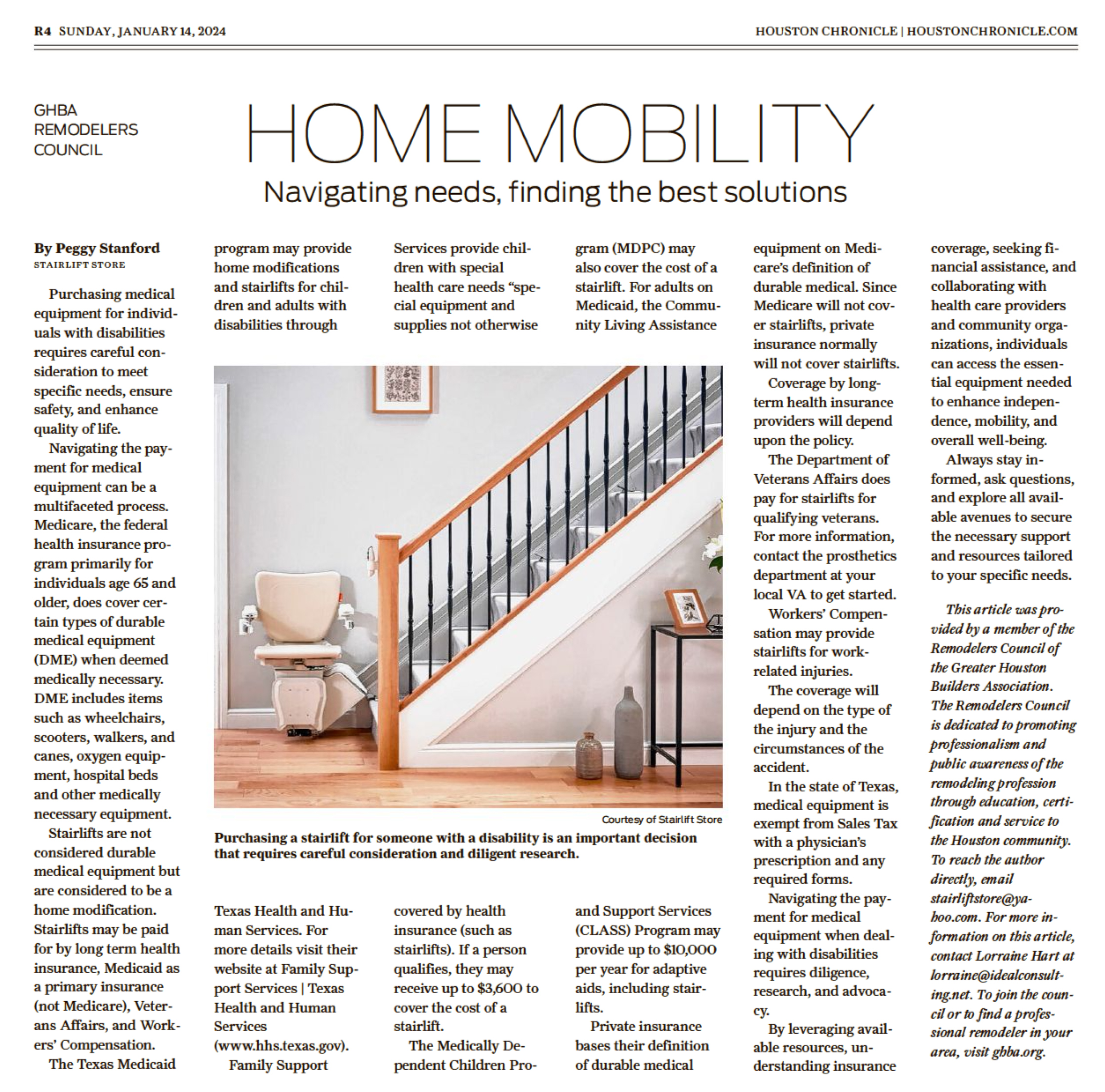Purchasing Medical Equipment

This article written by Peggy Stanford is about purchasing medical equipment. It appeared in the January 15, 2024 Sunday edition of the Houston Chronicle.
Purchasing medical equipment for individuals with disabilities requires careful consideration to meet specific needs, ensure safety, and enhance quality of life.
Navigating the payment for medical equipment can be a multifaceted process. Medicare, the federal health insurance program primarily for individuals aged 65 and older, does cover certain types of durable medical equipment (DME) when deemed medically necessary. DME includes items such as wheelchairs, scooters, walkers, and canes, oxygen equipment, hospital beds and other medically necessary equipment.
Stairlifts are not considered durable medical equipment but are considered to be a home modification. Stairlifts may be paid for by long term health insurance, Medicaid as a primary insurance (not Medicare), Veteran’s Affairs, and Worker’s Compensation.
The Texas Medicaid program may provide home modifications and stairlifts for children and adults with disabilities through Texas Health and Human Services. For more details visit their website at Family Support Services | Texas Health and Human Services (www.hhs.texas.gov).
Family Support Services provide children with special health care needs “special equipment and supplies not otherwise covered by health insurance (such as stairlifts). If a person qualifies, they may receive up to $3,600 to cover the cost of a stairlift. The Medically Dependent Children Program (MDPC) may also cover the cost of a stairlift. For adults on Medicaid, the Community Living Assistance and Support Services (CLASS) Program may provide up to $10,000 per year for adaptive aids, including stairlifts.
Private insurance bases their definition of durable medical equipment on Medicare’s definition of durable medical. Since Medicare will not cover stairlifts, private insurance normally will not cover stairlifts. Coverage by Long Term Health Insurance providers will depend upon the policy.
The Department of Veterans Affairs does pay for stairlifts for qualifying veterans. For more information contact the Prosthetics Department at your local VA to get started.
Workers Compensation may provide stairlifts for work related injuries. The coverage will depend on the type of the injury and the circumstances of the accident.
In the State of Texas, medical equipment is exempt from Sales Tax with a physician’s prescription and any required forms.
Navigating the payment for medical equipment when dealing with disabilities requires diligence, research, and advocacy. By leveraging available resources, understanding insurance coverage, seeking financial assistance, and collaborating with healthcare providers and community organizations, individuals can access the essential equipment needed to enhance independence, mobility, and overall well-being. Always stay informed, ask questions, and explore all available avenues to secure the necessary support and resources tailored to your specific needs.
